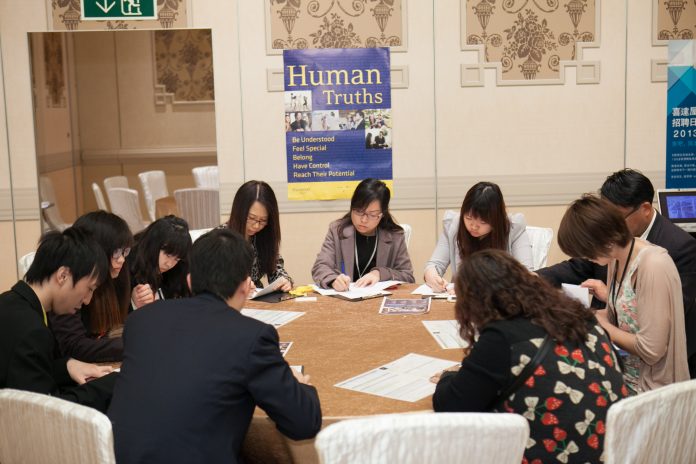Hotel human resource practice can have an impact – for better or worse – on employee turnover, says study by two IFTM researchers
Research Corner | A partnership between Macau Business and the Macao Institute for Tourism Studies (IFTM)
A research paper involving a scholar and a fresh graduate from the Macao Institute for Tourism Studies (IFTM) says that for Macau hotel firms to create human resource policies designed to be employee focused, is not in itself enough to ensure staff retention. The ways their respective human resource departments actually handle and implement those policies are important in influencing whether employees decide to stay or to leave, the study adds.
Hotel employees expect their company’s human resource department to play “greater and proactive roles” in such work, beyond “providing equitable opportunities” for staff professional and personal development, wrote IFTM assistant professor Sandeep Basnyat and IFTM graduate Clarence Lao. “Although providing a competitive salary and benefit packages and having employee-oriented policies are the necessary conditions for employees to stay with the organisations,” such factors are “not sufficient” to prevent them from leaving, said the authors.
They added that “how efficiently and proactively the human resource department handles those policies and practices” is looked at closely and “valued greatly by the employees,” and may “significantly influence” whether they decide to stay or leave.

The researchers said their study suggested hotel businesses should ensure they have mechanisms helping them “continuously” to monitor the overall satisfaction level of employees. The research pointed out that hotel managers needed “to understand their employees’ perspectives”, as this could help the senior leaders to address any “problems at the root level” and “send a signal to the employees” that the management was “genuinely interested in resolving their problems”.
The comments were featured in the paper “Employees’ perceptions on the relationship between human resource management practices and employee turnover: A qualitative study”, published last year in the academic journal Employee Relations.
The study results were based on individual in-depth interviews with 15 hotel workers. Each interviewee had worked for at least two different hotel companies in Macau in the previous five years, and was considered to be familiar with the respective human resource management practices in those places. The participants were aged between 23 and 52 years and worked in either a junior- or middle-management position.
Walk the talk
The IFTM researchers concluded in their study that hotel human resource departments played an important role in what type of organisational culture was promoted by the hotel company. “Employees consistently evaluate how certain practices – such as handling of internal complaints from… employees, promoting off-work activities, and engaging employees in formulating and implementing new policies and plans – are carried out by the human resource department,” wrote Dr Basnyat and Mr Lao.
They added that, “although employees may not explicitly exhibit” any dissatisfaction they might feel, the way the human resource department routinely carries out the mentioned practices “gradually shapes” employees’ “perception about the culture of the organisation”. The authors noted that in the long run, employee perception of organisational culture plays an important role in employees deciding whether to stay or leave.

The two researchers stated that addressing employees’ needs – “particularly those related to resolving complaints and managing relationships with other colleagues” – and providing opportunities for employees’ family members to take part in the hotel’s activities and to use its facilities, were “important practices” that human resource departments could initiate to encourage staff engagement. “It is also important to help and encourage employees to live a healthy and happy life, especially in cities like Macau and Singapore where the costs of living are higher” than in many other places, and “medical services are expensive”, they observed.
Dr Basnyat and Mr Lao suggested that human resource departments at hotel companies should develop mechanisms ensuring the “fair and equitable” professional and personal development of all employees within the organisation. “These practices lessen the environmental stress for employees, increase their interest in the organisational activities, improve their productivity,” and reduce their motivation to move on, they said.
The two researchers argued that for management to have comprehension of why staff chose to, or considered, leaving, was of “critical” importance. By “exhibiting interest” in resolving employees’ problems using ways that the employees deemed “appropriate”, management provided a “signal to its employees that it has a genuine interest in making its employees happy and satisfied, ultimately reducing the turnover rate” among the workforce.

– The researchers
Sandeep Basnyat is an assistant professor at the Macao Institute for Tourism Studies. He joined the Institute in 2017. He holds a PhD in tourism from the University of Otago, in New Zealand. His research interests include: employee relations; human resource management; work and working conditions; and emotion, emotional labour and labour sustainability in the tourism and hospitality industry.
Clarence Lao graduated in 2018 from IFTM’s Hotel Management bachelor degree programme.
– The paper
Sandeep Basnyat and Clarence Lao Chi Sio: “Employees’ perceptions on the relationship between human resource management practices and employee turnover: A qualitative study”, Employee Relations, Volume 42, Number 2, pages 453-470, 2019.
























